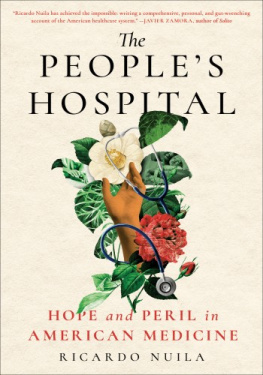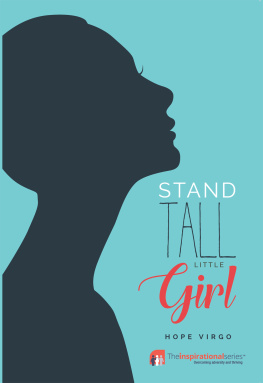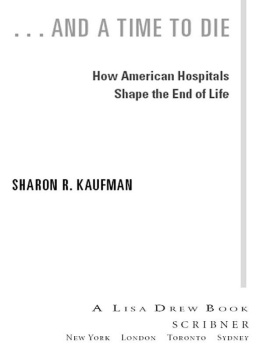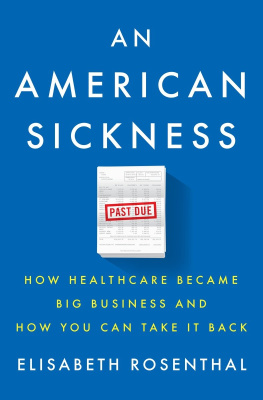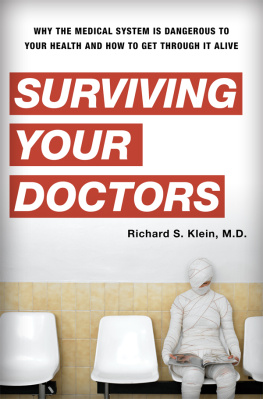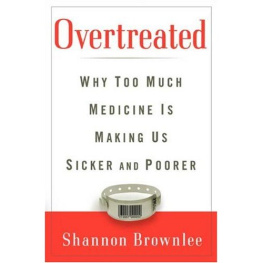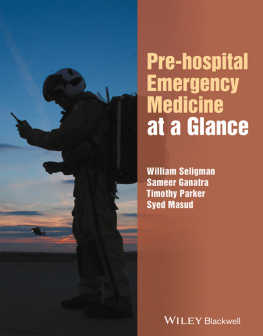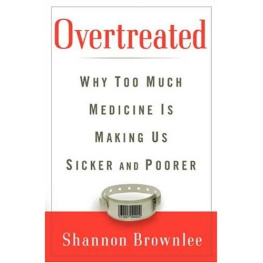Praise for The Peoples Hospital
A rare and unforgettable work, The Peoples Hospital takes us deep into the lives of some of Americas poorest patients. Following in the tradition of Bryan Stevensons Just Mercy and Atul Gawandes Being Mortal , Nuila makes a revelatory passage through a system that is both flawed and primed for reform.
Andrea Elliott, author of Invisible Child
Like a handful of other storied public hospitals in America, Ben Taub manages to do the impossible: to provide world-class care for the uninsured and indigent; train generations of physicians; pioneer medical breakthroughs; and do it at a fraction of the cost of fancier places. Nuilas lyrical and riveting prose lays bare the dysfunctional, expensive quagmire that passes for our healthcare system. His stories of patients and those who care for them capture the miracle that is Ben Taub. The Peoples Hospital is a tour de force.
Abraham Verghese, author of Cutting for Stone
Through poignant accounts of his patients, contextualized by medical history and layered with bits of family memoir, Ricardo Nuila has achieved the impossible: writing a comprehensive, personal, and gut-wrenching account of the American healthcare system. Patients, politicians, doctors, insurance companies, and people everywhere will benefit from this insiders description of Ben Taub Hospital in Houston, Texas. In The Peoples Hospital we are given a diagnosis of our current healthcare system but are also offered an imagining of a better future for everyone.
Javier Zamora, author of Solito
The Peoples Hospital is inspirational and gut-wrenching, thrilling and scrupulous, damning and hope-filled. Ricardo Nuila has seen the potential for our corporatized, profit-driven system to be reoriented around tenets of human dignity and offers readers a glimpse of what is possible when American healthcare recommits itself to the bygone promise of protecting our most vulnerable.
Francisco Cant, author of The Line Becomes a River
The Peoples Hospital is that rare book that is as warm and humanely written as it is urgent and necessary. And Ricardo Nuila is that rare writer who doesnt proclaim to be a savior, but rather a caring, knowledgeable doctor with generous ideas and stories to share. These stories are at turns painful, maddening, humorous, and uplifting. They are always powerfully told and colored by the full range of the human heart.
Jeff Hobbs, author of Children of the State
Ricardo Nuila takes a literary scalpel to the US medical system to reveal the cancer of greed ravaging patients in Houston and throughout the country. Fortunately for us, his skillful, even beautiful dissection of the disease of false hope reveals the healthy, pumping heart of living, breathing, and serving doctors and workers of Ben Taub Hospital. The Peoples Hospital is the antidote to hopelessness in healthcare that prevails.
Roberto Lovato, author of Unforgetting
In the wake of the COVID-19 pandemic, the impetus for transforming the American health system is more urgent than ever. Dr. Ricardo Nuila offers us a path forward in The Peoples Hospital , grounded in years of caring for patients, bearing witness to their stories, and observing how they link into the mosaic that is modern medicine. With humanity and humility, he guides us from a place of deep understanding, rooted in low-income communities in Houston, to a destination of healthcare as a human right for the entire country.
Dave A. Chokshi, MD, 43rd health commissioner of New York City
Ricardo Nuilas The Peoples Hospital is a tour de force. It is a call to action wrapped in powerful storytelling, a book that will prick the consciences of private practitioners while alerting the American public to the care they deserveand rarely receive.
Mimi Swartz, author of Ticker
Thank you for downloading this Simon & Schuster ebook. Get a FREE ebook when you join our mailing list. Plus, get updates on new releases, deals, recommended reads, and more from Simon & Schuster. Click below to sign up and see terms and conditions. CLICK HERE TO SIGN UP Already a subscriber? Provide your email again so we can register this ebook and send you more of what you like to read. You will continue to receive exclusive offers in your inbox. For the patients and staff of Ben Taub Hospital and it occurred to me that there was no difference between men, in intelligence or race, so profound as the difference between the sick and the well. F. Scott Fitzgerald, The Great Gatsby For there is no them, there is only us. Luis Alberto Urrea, Hearthland
Histories
T he rumor we heard was that patients arrived with hand-drawn maps, our hospital marked like treasure. The stately Nigerian lady who responded, Yes, Doctor, to everything (metastatic breast cancer). The boy with the black curly hair wearing red Converse All Stars and a Judas Priest T-shirt that screamed Mexico City (acute lymphocytic leukemia). The grandmother with the sari snagged in the guardrails (chest pain, real chest pain, might need bypass). We stood at these patients bedsides; we wrote down their histories; we said we were sorry for examining them with cold hands. We ordered blood tests, interpreted EKGs, scrolled through their CAT scans; we input diagnoses.
We werent just doctors. Among us were nurses, social workers, X-ray techs, the people who rode up and down the hallways in the middle of the night waxing the floors. Some of us wore white coats with frayed sleeves and busted pockets, others tight-fitting scrubs embroidered with our names. In our bad moments, we became tribal: we werent we, we were ortho, medicine, plastics, the 4A nurses; we only covered the unit. More often though, the needs of our patients were so damn immediate, we found a way to work as one.
We ran blood transfusions, heparin drips, a morphine pump when Norco didnt touch the pain. When COVID came, we gave oxygen together, one of us twisting the knob on the valve while the other inserted those tiny prongs into flared nostrils. We consulted one another when things looked dicey: surgery if we found boils, ID for antibiotics, and if anything looked remotely like a seizurea twitch, a rolling of the eyeswe paged neurology overhead. If Transportation was swamped, we wheeled them ourselves, to MRI, to Special Procedures, to the cath lab, even the ICU (how downtrodden we looked when we did this, like beaten dogs).
We figured out ways to make things work. Not enough money for your meds? We googled the $4 list at Walmart. Muscles too weak? We dug up a refurbished walker from the basement. Dying and homeless and alone? We called in a favor from the hospice that used to be a Tudor-style home. And when our work was done, once we could envision someone not dying within twenty-four hours of our discharge order, once the first chemo had gone in, once we could be sure their chief complaint was addressed, the thought still lingered in our minds: What brought them here? What are their stories?
Ben Taub Hospital. The largest safety-net hospital in one of Americas most diverse cities. We are Heathrow if you replaced the Emirates and the Virgin Atlantic planes with Greyhound buses. There are no atriums with pianists here playing Here Comes the Sun to welcome you, no soothing sounds of running water from hidden speakers or gasp from an actual indoor waterfall. There is no Starbucks. Our cafeteria serves some form of barbecue most days for lunch and packaged salads topped with egg or chicken strips. Thats unless you prefer the full-menu McDonalds (located inside the hospital) thats open twenty-three hours a day. We do have a gift shop, though it looks more like a convenience store, heavily stocked with greeting cards. Not the pun-filled ones; rather, the kind that get the point acrosscondolencesavailable in Spanish, too.
If you type Ben Taub into Google Maps, youll find it crammed between the Houston Zoo and the thirty other institutions that make up the Texas Medical Center, the largest concentration of medical facilities in the world. Some of the fields most important innovations took place in this medical metropolis: the first successful bypass, the first artificial-heart transplant, the first beatless artificial heart (imagine that, no lub-dub, just a constant whirring), the first silicone breast implant, one of the first civilian helicopter ambulances, the Bubble Boyall here.
Next page
